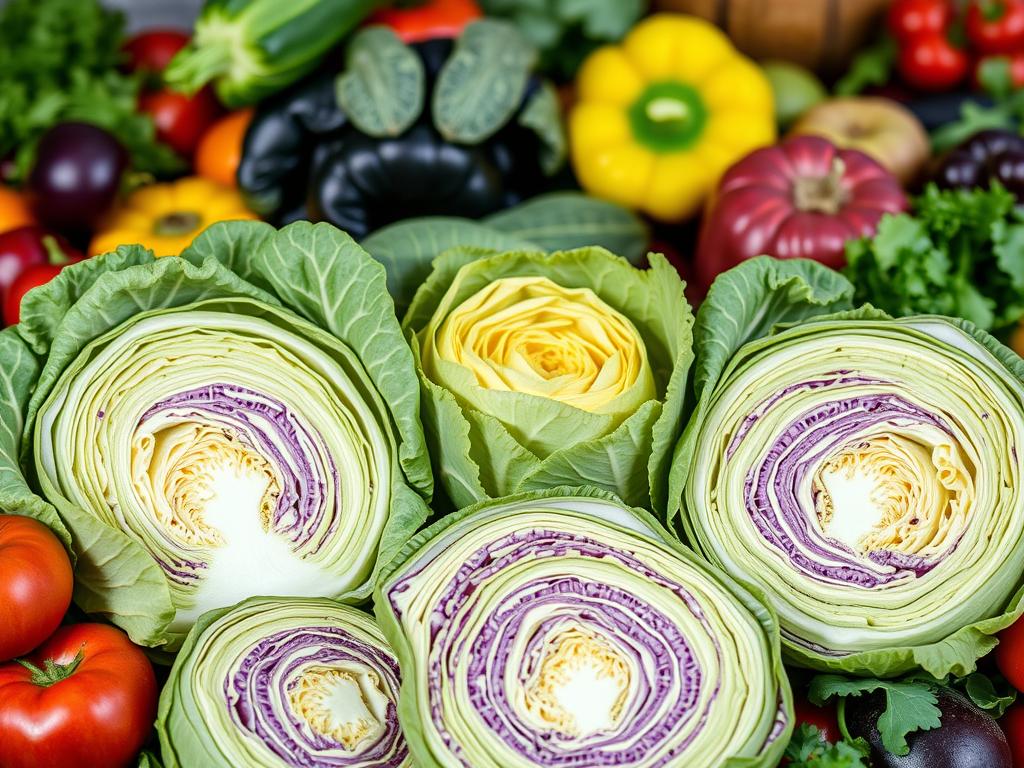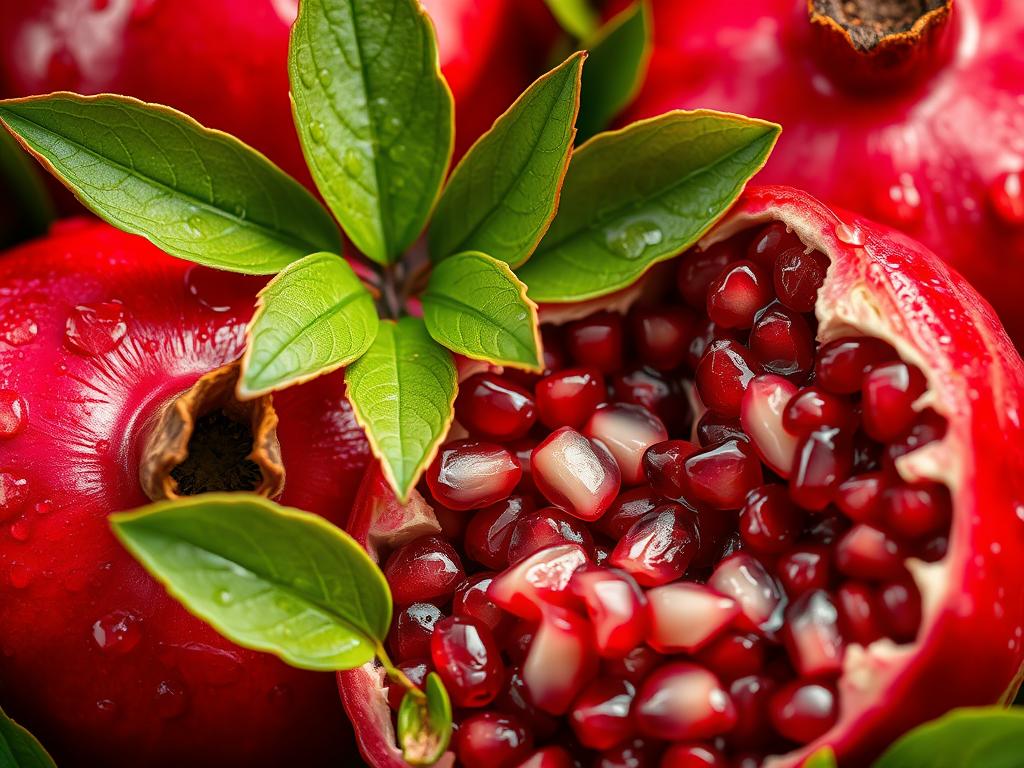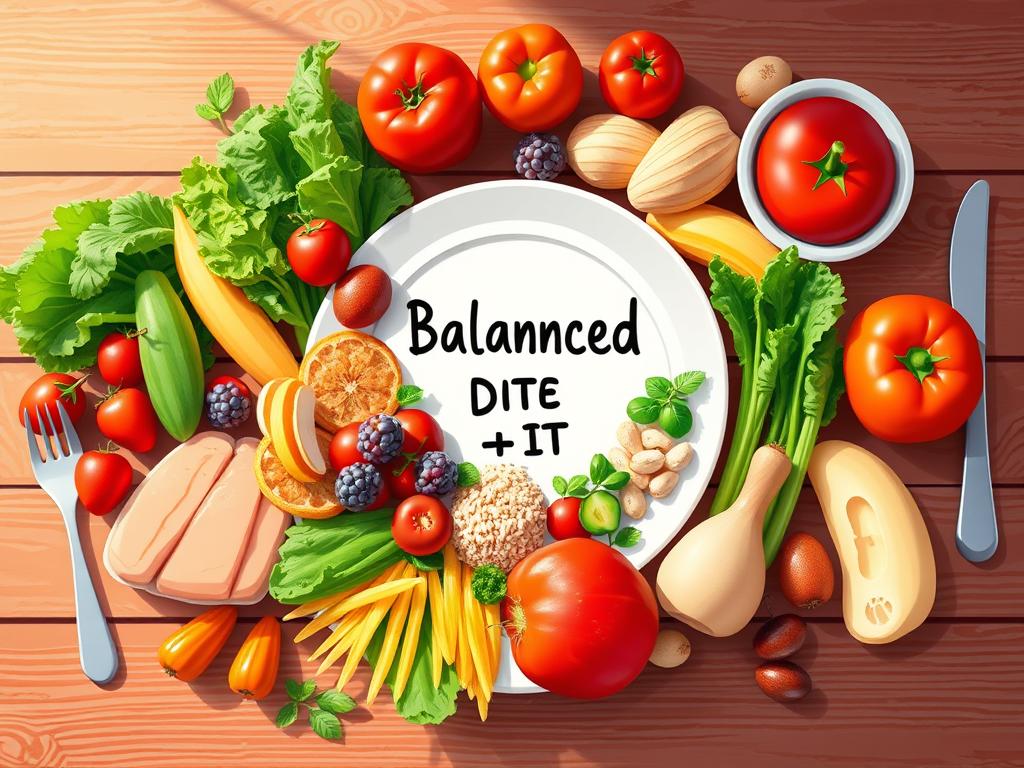Have you ever gazed at a fresh, vibrant head of cabbage and wondered about the potential it holds? This unassuming vegetable has a rich tapestry of health benefits that often go unnoticed. From family dinners to festive gatherings, cabbage has a way of weaving itself into our culinary traditions, sometimes without us even realizing it. Yet, when we take a moment to appreciate its nutritional glory, we find a wealth of benefits hidden beneath its crunchy exterior.
Cabbage, a truly fiber-rich vegetable, is loaded with essential nutrients that can support digestion, bolster heart health, and contribute to overall well-being. Join us as we explore the remarkable qualities of this powerhouse vegetable, revealing how incorporating cabbage into your diet can pave the way for healthier living.
Key Takeaways
- Cabbage is low in calories, making it a great addition to weight management plans.
- It is a rich source of essential vitamins like C and K, crucial for immune and bone health.
- The fiber content in cabbage aids in digestion and regulates cholesterol levels.
- Incorporating cabbage into your meals can help reduce the risk of heart disease.
- Cabbage can provide significant anti-inflammatory and antioxidant benefits.
- Trying various cabbage recipes can enhance your diet and enjoyment of this versatile vegetable.
Introduction to Cabbage and Its Nutritional Profile
Cabbage, a member of the Brassica genus, comes in various types such as green, purple, and red. This low-calorie vegetable contains approximately 25 kcal per 100 grams, making it an ideal choice for those seeking a nutritious option without excess calories. The impressive nutritional profile of cabbage is enhanced by its high water content, making it both refreshing and satisfying.
A single cup of raw green cabbage, weighing about 89 grams, provides invaluable cabbage benefits, contributing 22 calories, 2 grams of fiber, and significant levels of vitamins in cabbage such as vitamin K (54% of the daily value) and vitamin C (36% of the daily value). Vitamin C offers various health advantages, including immune support and skin health; details on this nutrient can be explored further in this informative resource.
Furthermore, cabbage contains essential micronutrients like folate, manganese, and potassium, which enhance its overall contribution to a healthy diet.
In terms of carbohydrates, cabbage contains about 6 grams per 100 grams, offering a low glycemic index of 10, making it a suitable option for those monitoring their blood sugar levels. Additionally, it provides 3 grams of sugar, which constitutes a small proportion of its overall makeup.
The fiber content stands at 3 grams per 100 grams, supporting digestive health as well as contributing to the recommended daily fiber intake.
With its complete and well-rounded nutritional profile, cabbage emerges as a versatile and beneficial vegetable that remains a staple in various culinary traditions around the globe.
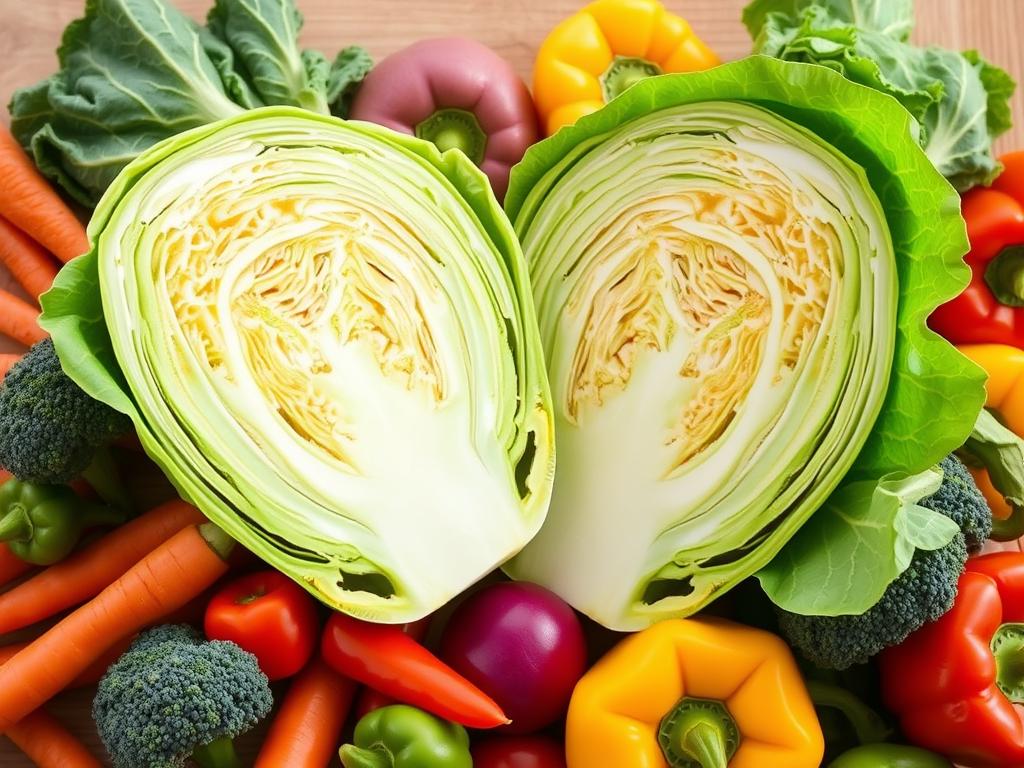
Why Fiber Matters for Your Health
A diet rich in fiber is essential for overall well-being, particularly for maintaining digestive health and managing weight. This fiber-rich vegetable, cabbage, stands out for its exceptional fiber content, offering numerous benefits for the body.
The Role of Fiber in Digestion
Fiber plays a critical role in digestion, with both soluble and insoluble varieties contributing to gut health. Insoluble fiber found in cabbage adds bulk to stool, promoting regular bowel movements and preventing constipation. Soluble fiber helps support beneficial gut bacteria, which are vital for nutrient production and absorption. With around 4 grams of fiber in two cups of raw cabbage, incorporating this versatile vegetable into your meals significantly enhances your daily fiber intake. Such benefits align with the nutrition profile associated with fiber-rich foods.
Fiber and Weight Management
Including cabbage in your diet can be an effective strategy for weight management. Foods high in fiber, like cabbage, provide a sense of fullness, which helps reduce overall calorie consumption. In a world where obesity and related health issues are escalating, the low-calorie count of cabbage—less than 20 calories per half cup when cooked—positions it as an excellent food for those seeking cabbage weight loss solutions.
This popular cruciferous vegetable not only supports digestion but also presents a satisfying option for those looking to manage their weight.
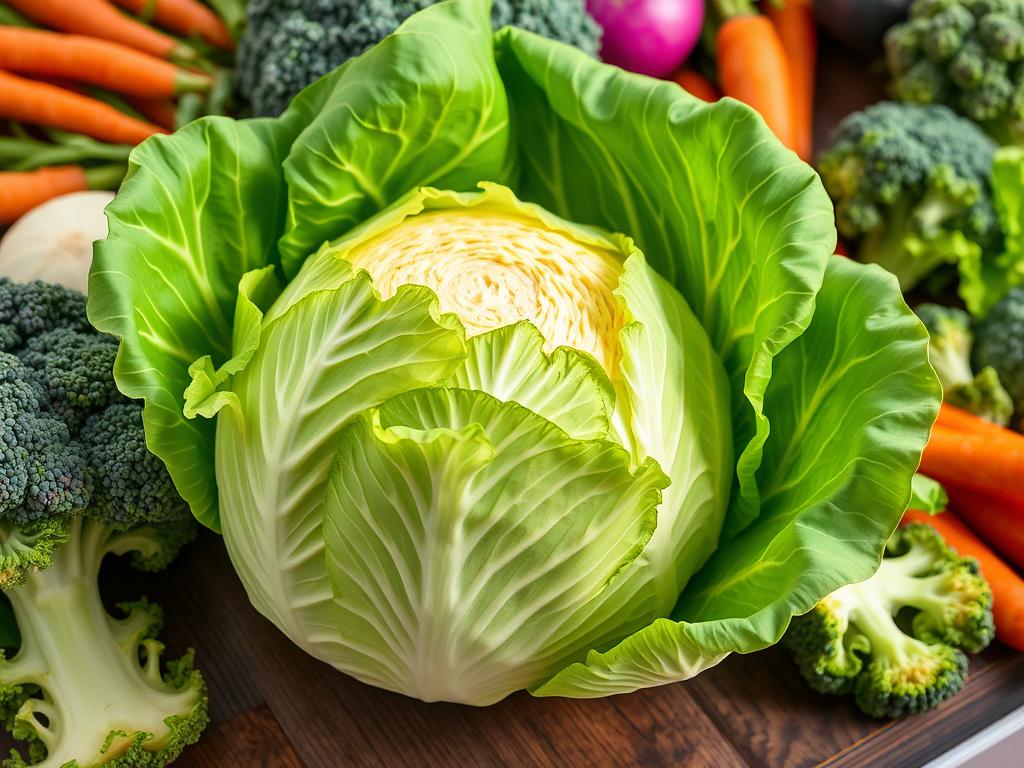
Key Health Benefits of Cabbage
Cabbage is not only versatile but also a nutrient powerhouse. This remarkable vegetable offers various health benefits that can enhance well-being. Its rich profile boasts numerous vitamins and minerals, promising to support overall health.
Rich Source of Vitamins and Minerals
One significant advantage of cabbage lies in its content of essential vitamins. A one-cup serving of shredded raw cabbage delivers about 40 milligrams of vitamin C, which caters to more than half the daily recommended intake for women. It also provides vitamin K, vital for calcium absorption and bone health, with approximately 53 micrograms per cup. These vitamins in cabbage are pivotal for maintaining skin integrity and strengthening bones, making regular consumption beneficial.
Antioxidant Properties of Cabbage
The array of antioxidants found in cabbage, including lutein and zeaxanthin, safeguards ocular health. These compounds reduce the risk of age-related macular degeneration and other vision problems. Additionally, cabbage is rich in polyphenols and sulfur compounds, which combat oxidative stress and lower the risk of chronic diseases. Incorporating this vegetable into your diet boosts antioxidant intake and supports overall wellness, aligning with healthy eating principles as highlighted in various health discussions like those around avocados.
Anti-Inflammatory Effects
The anti-inflammatory properties of cabbage are attributed to glucosinolates, which may help reduce markers of inflammation associated with various conditions, including heart disease and arthritis. Regularly eating cabbage could contribute to lower inflammation, reinforcing its role in a health-conscious diet. These critical cabbage health benefits effectively support healthy living and may potentially reduce the risk of numerous health issues.
Cabbage in Your Diet: How to Incorporate It
Embracing cabbage in your meals opens a world of flavors and health benefits. This versatile vegetable can be incorporated in numerous cabbage dishes that cater to different tastes and dietary needs. Whether you prefer crunchy salads or warm sautéed options, there are countless cabbage recipes to explore. Try these delightful ideas to transform your meals.
Delicious Cabbage Recipes
- Classic Coleslaw: Combine shredded cabbage with carrots and a tangy dressing for a refreshing side dish.
- Sautéed Cabbage: Stir-fry cabbage with garlic and spices for a quick and flavorful vegetable side.
- Stuffed Cabbage Rolls: Wrap meat and rice in cabbage leaves and bake in tomato sauce for a hearty meal.
- Kielbasa and Cabbage: Cook sliced sausage with cabbage for a filling and simple one-pan dish.
Creative Ways to Add Cabbage to Meals
Incorporating cabbage into your diet can be both tasty and easy. Explore these creative ways to enhance your meals:
- Use shredded cabbage as a crunchy topping for tacos or sandwiches in place of lettuce.
- Add cabbage to soups and stews for added nutrients and texture.
- Blend cabbage into smoothies for an unexpected health boost without the extra calories.
- Utilize cabbage leaves as wraps for meats or vegetables, making a low-carb alternative to traditional tortillas.

| Cabbage Nutritional Value (per 1 cup, chopped) | Calories | Fiber (g) | Vitamin C (% DV) | Calcium (% DV) | Protein (g) |
|---|---|---|---|---|---|
| Cabbage | 22 | 2.2 | 54% | 4% | 1.1 |
Potential Risks and Considerations
While cabbage offers a plethora of health benefits, there are some potential risks associated with its consumption that deserve attention. Individuals should be aware that a sudden increase in dietary fiber, especially from cabbage, can lead to gastrointestinal discomfort such as gas and bloating. This reaction often stems from the type of carbohydrates found in cabbage that are harder for the digestive system to break down. To minimize these effects, consider introducing cabbage into your diet gradually.
Gas and Bloating from High-Fiber Foods
For many, an increase in fiber-rich foods can lead to the uncomfortable side effects of gas and bloating. Cabbage, along with other cruciferous vegetables, is known for producing these effects when consumed in large amounts. To ease this discomfort, you can prepare cabbage through cooking, which can help break down some of the fiber and make it easier on the digestive system.
Thyroid Function and Cabbage Consumption
If you have concerns regarding thyroid function, take note that cabbage consumption may impact hormone levels due to its goitrogenic properties. Individuals on blood thinners should consult healthcare professionals before making cabbage a regular part of their diet because its high vitamin K content may interfere with anticoagulant medications. Awareness of these interactions is essential for maintaining health and wellness.
Conclusion: Embracing Cabbage for Healthier Living
Including cabbage in your diet offers a multitude of health benefits that make it a smart choice for anyone looking to boost their well-being. This versatile, fiber-rich vegetable not only supports digestive health but also aids in weight management due to its low calorie content—just 25 calories per cup. As a powerhouse of vitamins and minerals, cabbage enhances your daily nutrition while being economical and easy to incorporate into a variety of dishes.
Furthermore, the antioxidant properties of cabbage and its potential anti-inflammatory effects position it as a valuable ally in the fight against chronic diseases. Rich in essential nutrients like vitamin C, folate, and potassium, this leafy green can significantly contribute to a balanced diet.
When prepared using healthier cooking methods such as steaming or sautéing, cabbage retains its nutrients while providing satisfying flavors.
Ultimately, embracing the health benefits of cabbage is a step toward a healthier lifestyle. The addition of this fiber-rich vegetable to your meals can enhance overall wellbeing, making it a worthy component of a diverse and balanced diet. Discover the myriad of ways to enjoy cabbage and witness the transformative impact it can have on your health journey.

